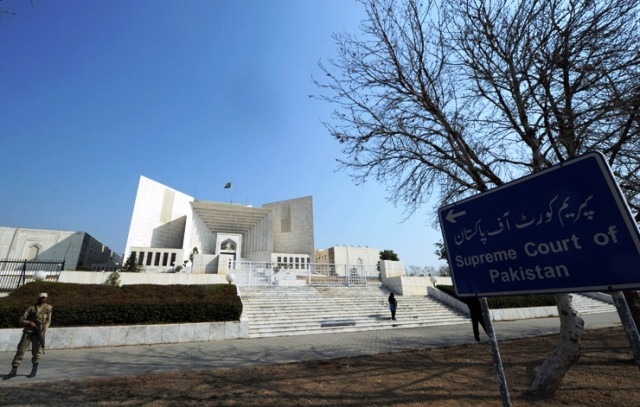New contempt law: Presidential immunity up for debate at court hearing
Prime Minister Ashraf and law minister pore over a legal strategy for the cases scheduled this week.

With the Supreme Court all set to hear petitions challenging the new contempt law on Monday, the concept of presidential immunity will come under discussion for the first time in the country’s history.
A five-member bench, headed by Chief Justice Iftikhar Muhammad Chaudhry, will initiate the hearing of 27 petitions challenging the Contempt of Court Act 2012. The controversial legislation – which has been termed a ‘black law’ by the opposition – is aimed at shielding the new premier from contempt proceedings similar to those that led to Yousaf Raza Gilani’s ouster from the country’s top office.
One of the petitioners, former Islamabad High Court Bar Association president Advocate Ashraf Gujjar has directly challenged presidential immunity on the grounds that it is against both the Constitution and Islam.
He says the draft of the new law gave him a chance to make the court realise that presidential immunity is contradictory to the principle of equity, as enshrined in Article 4 of the Constitution. Gujjar also maintains that the concept is at odds with articles 2, 2A and 5 of the Constitution as well. According to Article 2, no law that contradicts Islamic injunctions can be promulgated in the country.
By ‘poorly drafting’ the new law, the government has provided a chance to settle the immunity issue once and for all, he added.
Presidential immunity has been cited by the government as a hurdle to the implementation of apex court rulings against the National Reconciliation Ordinance (NRO). Gilani had endorsed the argument while refusing apex court directives to write a letter to Swiss authorities asking the reopening of graft cases against President Zardari – a move that eventually led to his disqualification as the prime minister.
Prime Minister Raja Pervaiz Ashraf now faces the same scenario, having been told by the apex court to write the letter by the 25th of this month or face ‘appropriate action’.
Under the new law, immunity has been provided to all public office holders in the light of Article 248. Gujjar claimed this revealed government intentions to derail court proceedings in the NRO implementation case.
Government’s legal strategy
On Sunday, Law Minister Farooq H Naek and Prime Minister Ashraf held a meeting to finalise a strategy for the cases scheduled this week.
During the meeting, Naek also informed the premier about his contacts with Pakistan Bar Council (PBC), which has also petitioned against promulgation of the new contempt law.
A senior official told The Express Tribune that the government would appreciate if the Supreme Court referred the matter back to parliament along with PBC’s recommendations on the new law. Pakistan Peoples Party senators Aitzaz Ahsan, Raza Rabbani and Babar Awan had also expressed reservations over a few clauses of the law.
Published in The Express Tribune, July 23rd, 2012.



















COMMENTS
Comments are moderated and generally will be posted if they are on-topic and not abusive.
For more information, please see our Comments FAQ